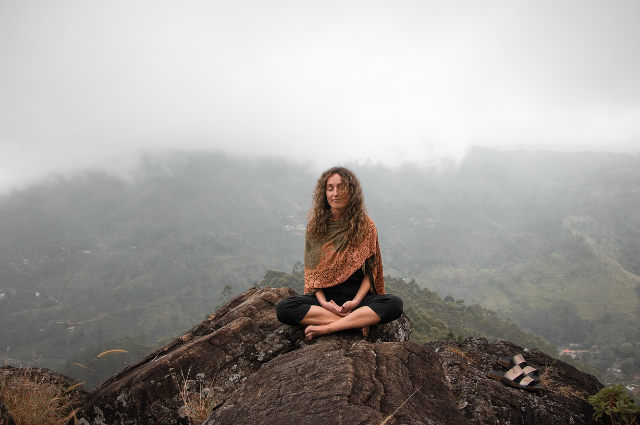
On a Saturday morning, if you are like most people these days, your phone probably buzzes with reminders for meditation, a nutrition app, or a positive message from your yoga class rather than urgent work emails. People tell us that self-care is sacred, so every free moment becomes an opportunity to practice gratitude journaling, deep breathing, or other recommended soul-care techniques. However, a new form of weariness is subtly encroaching: the weariness of maintaining the rituals that guarantee our completeness. Ironically, the very wellness movements that are meant to keep us well are also the source of this spiritual fatigue.
Self-Care: Stressor or Saviour? The evidence is unmistakable: genuine spiritual health shields us from burnout. Research on medical professionals, nurses, and students consistently demonstrates that having a spiritual purpose—whether it be based in faith, interpersonal relationships, or introspection—helps reduce everyday stress. For instance, one study of medical students revealed that those who felt spiritually rooted reported better moods and higher levels of life satisfaction, avoiding the severe emotional and physical effects of burnout.
The opposite side? Self-care loses its therapeutic value when it just becomes another task on our to-do list. According to author J.S. Matkowski, "burnout is not far behind when giving becomes a masquerade and self-care a retreat." He is not by himself. The impossible pursuit of wellness itself, including the stress of paying for incessant seminars, the shame of missing a gratitude journal entry, and the constant comparison with flawlessly manicured Instagram lifestyles, is increasingly causing therapists to witness clients exhausted, not by overwork.
Is "Wellness" Causing More Damage Than Benefit? It is easy to think that finding wellness is a personal journey—all you need to do is grab a yoga mat, download a guided meditation, and get going! However, such is rarely the case in actual life. The Global Wellness Institute claims that the industry has grown into a multitrillion-dollar juggernaut designed to meet consumer demand and make money off of our quest for inner peace.
This frequently results in the fragmentation and repackaging of long-standing, communal practices: breathing exercises become trademarked, meditation retreats become photo opportunities, and even silence can become competitive. Even worse, businesses may force self-care apps on their employees while avoiding more serious problems like a poisonous workplace culture or excessive workloads. Burnout is not a sign that self-care is lacking. Burnout researcher Christina Maslach thinks it is a mismatch between the individual and their workplace. Therefore, you are not to blame if your nightly ritual of burning candles and reciting mantras makes you feel more nervous rather than at ease, or if your employer believes that meditation will mask structural issues. We cannot "self-care" our way out of a society that consistently demands more of us than we can provide.
Statistics Show That Burnout Is More Important Than Self-Care. The irony? Burnout persists despite the explosion of self-care. In the United States, two-thirds of full-time employees report having gone through burnout symptoms, and stress at work is a contributing factor in hundreds of thousands of fatalities annually. Burnout is an issue that nearly half of workers globally report experiencing regularly. No amount of pricey green juice or good mantras can solve this issue. What is meant by this? Surroundings that lack structural support can still cause harm, even with the strongest wellness regimen. Breathwork and bubble baths will not address the underlying issues.
How Does Spiritual Burnout Appear? Have you ever left a meditation session feeling strangely worn out rather than at ease? Or have you ever wondered if your self-care regimen is "good enough"? In the hopes that this would be the thing that completes you, you may have felt bad about missing a day or even spent money you could not truly afford on retreats, classes, or the newest wellness gear. That indicates that the balance has shifted. Self-care ought to be a sanctuary rather than a yardstick. When it becomes something you have to "perform" instead of enjoy, it stealthily eats away at the same tranquility you were looking for.
Where is the equilibrium? A "golden medium" is a region that is between too much and too little, according to philosophers like Aristotle.
Perhaps the solution is there: true self-care is about discovering what truly feeds you in the present, not about crossing things off a list.
Here's how to begin restoring equilibrium: Take note of your why: Ask yourself, "Am I doing this out of necessity or true desire?" before beginning another habit or pattern.
Establish limits: Do not let wellness take up too much of your schedule. A few significant practices are superior to a dozen superficial ones.
Simplify: The best self-care is free and includes things like a sincere conversation, a cozy lunch, and a peaceful stroll. It is not necessary to purchase enlightenment.
Address the underlying causes: Do not expect self-care to "cure" burnout if it stems from toxic relationships or your job. Sometimes, asking for help or establishing boundaries is the most spiritual thing you can do.
Seek community: An unrelentingly self-centered culture might backfire. What private rituals cannot, shared meals, laughter, and service frequently do.
The Foundation of Genuine Self-Care. Genuine self-care ought to be easy and long-lasting rather than just another excuse to feel behind. Spirituality is a peaceful place to rest, connect, and find yourself again; it was never intended to be a contest, a show, or a consumer good. Maybe the solution is to slow down, do less, and believe that meaning derives from everyday moments rather than ongoing development, despite how tempting it is to follow the newest wellness fad. By allowing ourselves to relax instead of striving for a fictitious "best self," we realize the fundamental goal of all these activities, which is to make us feel completely, wonderfully human.
